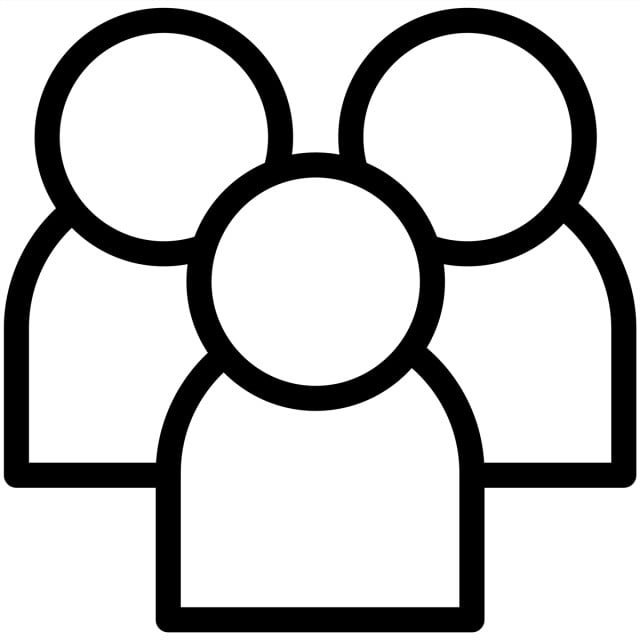Get Free Trial Week Developer Access, Try Before You Hire. Click Here to Claim Now
Nowadays, establishing a company website is required to get a competitive advantage, and one of the things you need to achieve that is proper CMS platforms. The phrase CMS is not new to you; various new platforms emerge every year, and it might be difficult to identify the best CMS platforms to pick from.
Do you have any idea? None of the CMSs that we track are used by 39% of the websites. WordPress, Joomla, and Drupal are utilized by 33.8 percent of all websites, 2.9 percent of all websites, and 1.9 percent of all websites, respectively. There are CMS options for your individual needs, whether you need to set up a blog, a portal for maintaining a web presence, an attractive eCommerce website, or anything else to increase your online presence. The best CMS options for a website are determined by your needs and those of your business.
Now, let's look at the top five CMS systems and what they provide differently in their most recent updates:
What Exactly Is A Content Management System?
A content management system (CMS) is a piece of software that is used to manage online content. It enables numerous contributors to design, produce, and publish various forms of content, which are stored in a database and shown in a presentation layer based on a set of templates. Some of the most important characteristics of a Content Management System are:
- Material Creation is the process of creating and formatting content.
- Stuff Storage allows you to keep all of your content in one location.
- Workflow management to give author privileges and responsibilities Publishing to make material live
What to Look for in a Content Management System?
We recommend checking for the following aspects while researching content management systems:
- A sophisticated content editor that supports both visual and code-based editing. It's also good to see builders that can be dragged and dropped.
- CMS core functions such as the ability to add, format, and publish material, as well as user roles, are all included.
- Third-party themes, plugins, and integrations are available to help you improve your site.
- CMS marketing tools or integrations for email marketing, social networking, and discounts, for example.
- Product sales may be possible with eCommerce capabilities.
- Your design should be adaptable. This features mobile responsiveness and management over custom code.
WordPress
This is a PHP-based online, open-source website construction and administration application that ranks #1 among CMS platforms. However, in non-technical terms, it's undoubtedly the easiest and most powerful blogging and website content management system, with a combined market share of 60.6 percent. If you want a website for blogging, product shows, or e-commerce that is high quality, has strong support, and is secure, the WordPress CMS platform is a great option.
- WordPress Essential Features
- Using Screen Options, you may show and hide items.
- Dashboard Widgets may be moved, added, or removed.
- Themes Can Be Viewed Without Being Activated
- Image Retouching
- Dividing a single post into many pages
Magento
Magento is an open-source e-commerce platform that provides online retailers with a configurable shopping cart system. It is regarded as one of the best CMS systems in the eCommerce business. Magento provides robust marketing, search engine optimization, and catalogue management options. Magento, which is designed specifically for e-commerce shops, has a 6% market share among all eCommerce CMS platforms.
Magneto Characteristics
- Tools for Marketing
- Promotions
- Conversion
- Site Administration
- Catalog Administration
- Catalogue Browsing
- Product Administration Checkout
- Payment
- Shipping Order Management
Drupal
Drupal is ranked third among the major cms content management system. Drupal is a ready-to-use content management system (CMS) solution for website construction based in the PHP programming language. Content management, newsletters, collaborative publishing, podcasts, image galleries, file uploads/downloads, peer-to-peer networking, and other features are all supported by the program
Drupal Key Features
- New Theme Engine
- More HTML5 Power to You
- Multilingual Ready
- Manage Your Configuration
- Easy Authoring
- Quick Edits
- Views Now
- Part of Core
Joomla
Joomla is a CMS platform/web development platform that is meant to be simple to install and set up even if you are not an expert user. Few Web hosting services provide a single-click installation, allowing you to get your new site up and operating in a matter of minutes. Because Joomla CMS tools for website construction are so simple to use for Web app developers or designers, your web developer will be able to build sites swiftly. Furthermore, Joomla makes it easy to administer the website in the future.
Joomla Key Features
- Multilingual
- User Management
- Media Manager
- Banner Management
- Powerful Extensibility
- Web Link Management
- Frontend Editing
- Content Management
Umbraco
This is marketed as one of the most user-friendly CMS platforms available, with the goal of allowing users to create and change content on a website to meet their specific requirements. The platform as a whole is built on Microsoft's ASP. Net foundation. In contrast to other PHP-based CMS platforms. The internet environment is considered to be more secure. If you want a platform that is resistant to malware assaults and does not require regular upgrades like WordPress or Drupal, you should engage Umbraco engineers.
Umbraco Key Features
- Editing or storing data
- Maintain and manage the website
- Full Design control
- Supports Standard Tools
- Allows uploading images, videos, and files
- Smart Search feature
- Supports Cloud
Shopify
Shopify, with a market share of 2.7, is one of the largest SaaS-based eCommerce CMS (software as a service). This cm is used to create an eCommerce shop with features such as payment gateway integration and product administration. Other components of online stores handled by this content management system include web security, web hosting, SSL certificates, and so on.
Advantages
- Shopify can simply be combined with WordPress and applications to offer more features and functions.
- It develops aesthetically beautiful online stores with rich UI and excellent UX.
- Shopify's basic edition has outstanding SEO tools as well as powerful e-commerce analytics and has a super-fast loading speed.
Squarespace
This is a premium service. Despite the fact that you may select from a broad variety of outstanding templates and modules, you're pretty much locked with what you receive. The templates themselves have been tailored to work with any sort of website. If all you need is a quick and easy way to create a visually appealing website, Squarespace is the way to go. You won't have to be concerned about technicalities or wonder what a content management system is. Instead, you may concentrate on content production and simple CMS marketing.
Ghost
If all that you’re looking for is a clean writing experience for both bloggers and readers, try Ghost. It allows you to focus on writing your posts. It’s user-focused, with a minimal interface, and uses Markdown in the Editor. You can choose from dozens of pre-made themes, use the free, built-in membership functionality, and manage email newsletters directly from the dashboard.
Wrapping Up
As you can see, deciding which CMS platform is the greatest fit for your specific web development entails taking into account a number of factors. Each web development platform has advantages and disadvantages. You select the CMS platform that best meets your needs from the selection provided above. Using the best CMS platform for web development isn't enough; if you don't know how to utilize the chosen CMS platform correctly, it's pointless. This issue is fixable, but you will need to engage and hire top-notch web developers to do it. We will advocate hiring efficient WordPress, Drupal, Joomla, Magento, and Umbraco CMS platform developers from the top agile web development companies.
Subscribe to Our Newsletter!
Join us to stay updated with our latest blog updates, marketing tips, service tips, trends, news and announcements!





















